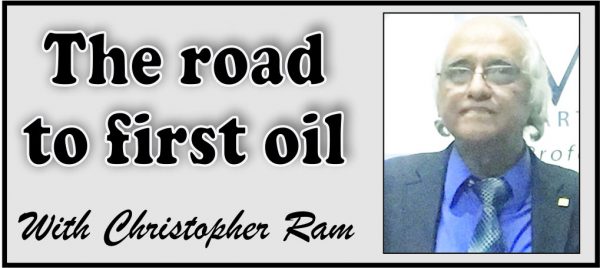
It is hard to accept this as a mere public relations gimmick. Exxon has shown itself to be untrustworthy and unwilling to share information with a more informed public. Any information exchange will be more like propaganda delivered in the most cynical and contemptuous manner. We are all too well aware how the GGMC boss was treated in Texas, how Granger and Trotman buckled in front of Exxon’s officials, and witness how it treats the Government like a bedfellow, and the public as enemies with whom no information should ever be shared.
This tour brings to mind a willingness on the part of Exxon to play popular games with the people of Guyana, in an electoral environment in which both the PPP and the APNU have shown themselves absolutely unwilling to account for collections for elections. Exxon has ready cash with decades of clandestine experience in engaging in the political arena. So, the real question is whether and how Exxon plans to engage the political parties by making significant contributions to one party and offer crumbs to the other for the 2025 elections.
Steve Coll’s book, appropriately titled Private Empire ExxonMobil and American Power, offers us some insight. It describes Exxon’s overt political action via what is called a Political Action Committee (PAC) and particularly its role in supporting the Republicans for the 2008 elections. The PAC invested $722,000 on candidates for federal political office, which amount might not seem particularly significant, but the real interest is in how the money was shared between the two parties.
Only twenty-eight of the 207 recipients of ExxonMobil’s PAC contributions during the 2008 cycle were Democrats; in dollar terms, ExxonMobil gave just 11 percent of its money to Democrats. In fact, the corporate PAC gave more heavily to Republicans than did the company’s employees when they made donations as individuals. Political contributions between 2000 and 2008 by individuals who declared an affiliation with ExxonMobil on disclosure forms – including Tillerson, Cohen, and other senior executives – totaled US$1.22 million.
Exxon was not shy about its role – an executive involved in political spending decisions said that the PAC outfit was business-oriented, and it was looking for candidates who are pro-business. One of its mailings boldly proclaimed: “Electing people who will pursue policies that are good for our industry and make sense for our families is an important responsibility,” This confirms some things we in Guyana have come to know. Exxon has no scruples, no red line and no threshold which it should not cross.
There is no such concept as a PAC in Guyana and anything goes when it comes to donations to political parties, which we all know are not shy to accept moneys from all and sundry. The expectation then is that Exxon will play a part in elections financing in all forms, whether in paying for information and analytic specialists, printing, giveaway material and of course cash. The most troubling cause to worry is that there is nothing anyone can do about it.
GECOM is not interested in how democracy has become a commodity in Guyana, where there are no rules. The PPP/C and the APNU will always have excuses for taking money from tax evaders and anyone else. For Exxon, there is a lot at stake, which is a wonderful and convenient environment.
No doubt, Exxon would prefer not to have to deal with the continuous stream of negative publicity which it receives almost on a daily basis. But it is fortified in the knowledge that Aubrey Norton, the Leader of the Opposition, after more than three years, has no understanding or position on the 2016 Agreement, the audits, the environment or the petroleum operations. And that the Government people, without exception, are its biggest defenders and protectors, willing to do its bidding.
It is not that Exxon necessarily likes any of the two but the protection of the 2016 Agreement with all its benefits is the most important thing for the company. It needs to ensure that it can secure that blind support and for that it will do anything.
It is unclear whether the Bus Tour has received clearance from the Government. It is even an idea which it can share with Robb Street.




